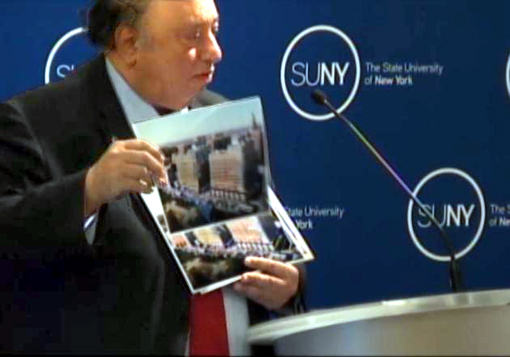LICH bidder Brisa disqualified as SUNY board puts off vote
Trustees hear plans, prepare to face Brooklyn judge

The SUNY board of trustees heard the pitches of four of the five developers competing to buy Long Island College Hospital (LICH) on Friday, but the board made no decision about which proposal it favored in the tumultuous windup of its disputed RFP (Request for Proposals) process.
Board members are facing a contempt hearing in state Supreme Court on Tuesday for their actions in attempting to close the hospital despite numerous court orders to keep it open.
In the meantime, Governor Andrew Cuomo told Capital New York on Thursday that the state might yet use some of the $10 billion Medicaid waiver funds to help save the hospital, despite the declaration by the head of the state Department of Health, Dr. Nirav Shah, that LICH was ineligible to receive the money.
